You Have Nothing To Lose But Your Chains
Around Lake Ladoga 2001 800km
James Reynolds
On 3rd April 1917, Lenin arrived at Finland Station, in what was then called Petrograd. Immediately, from atop an armoured car in the square outside, he gave a speech calling for the Revolution. On 20th June 2001, I arrive at Finland Station, in what is now called St. Petersburg. However the only revolutions on my mind involve wheels and pedals, as on the following day the statue of Lenin outside the station would the start of the first Russian international randonnée: Around Lake Ladoga. Losing my chain, however, is a major worry. Previous mechanical problems mean that I have had to cobble together a transmission from bits of three bikes, all nominally incompatible, and further minor damage in transit causes the chain to unship and suck regularly. In fact only a handful of mid-range gears work at all. But Petersburg is flat, and I hope that this won't be too much of a problem. Over an 800km randonnée everything should wear in.
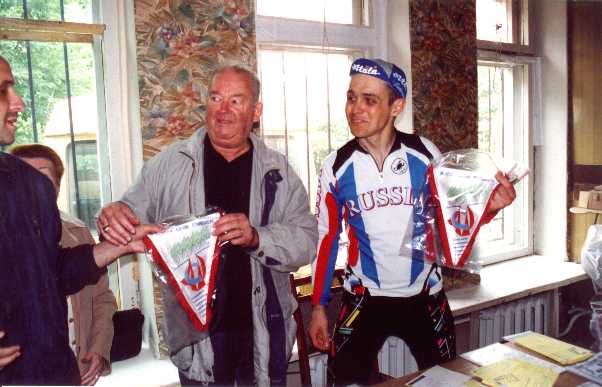
"International" is perhaps a slight overstatement for this randonneé, as the non-Russian elements are Bob and Suzanne Lepertel (organisers of the PBP), there as guests; Yuri Levkovski, from the Ukraine (not exactly non-Russian); and me. I must confess that I am not entirely non-Russian either, as I am married to a Russian, speak the language (albeit badly), and have previously cycled across Russia to Vladivostok. So whilst I have never done a randonnée there before, I have plenty of experience of the country. But I know that this doesn't necessarily mean that I am prepared: Russia is different. All you can do is expect the unexpected.
The only
thing I can be sure of is that it won't be like an English randonnée. For a start, in England the route sheet would
be half a dozen pages of closely-typed text: here it is a third of a page of A4
- and most of that to indicate where the controls are. There just aren't very
many roads - apart from detours to controls, only three are used. Speaking of
controls, there aren't many of them either, and at only two is it stated that
there will be food available. However in a nation which enjoys eating and
drinking as much as the Russians it shouldn't be too difficult to find
refreshment. And then there are the roads themselves. Russians are convinced
that they have the worst roads in Europe. Whilst this isn't quite true - some
of our more sadistic organisers delight in finding worse ones - Russian roads
are not terribly good. But worse than the roads are the drivers. Russian driving
has all the discipline of the Italians combined with the competence of the
Belgians. Regularly you see roadside memorials, with a photo of the victim;
star, cross, crescent or other symbol of political/religious affiliation; and
quite often a piece of mangled car. Whilst these have a sobering effect on me,
Russian drivers seem unfortunately completely unaffected.
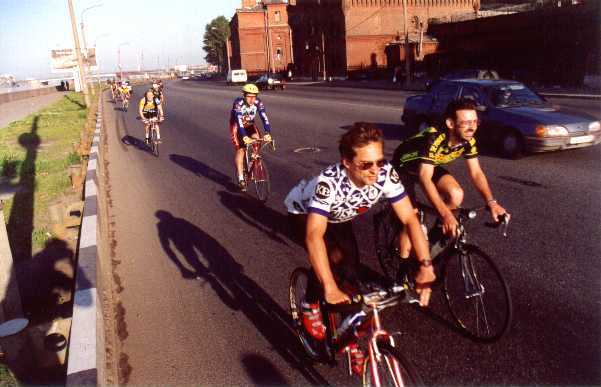
From Finland Station I am whisked off to the children's home which is acting as HQ, to meet the other participants and register. And here I find a definite and rather macho undercurrent of competitiveness. Personally I've never thought that sitting on a hard saddle for two days is the best test of one's manhood, but who am I to say otherwise? Added to this is the peculiar Russian attitude to foreigners: whilst they are the friendliest and most welcoming of people there is a general belief that foreigners are too soft to cope with Russia and need to be mollycoddled. It goes without saying, at least to the Russian mind, that a Russian muzhik is tougher and stronger than a mere foreigner, and there seems to be some doubt as to whether I shall even finish. Out comes the bulldog spirit: if they want a race I shall give them a race, and show them just what an Englishman can do.
Next
morning we ride down to Finland Station for the start. A group of about forty
cyclists assemble under the statue of Lenin. I have taken a maximalist
approach, carrying three water bottles and a full(ish) pannier: everyone else
is carrying less than me. In fact there is no other pannier visible: luggage
includes bar bags, rack packs and improvised containers suspended from more or
less likely parts of the bikes. Some appear decidedly under-equipped, I wonder
how they expect to get round. Do they know something I don't? But it's too late
to worry about that now. Then, after a brief speech by Bob, we are off - late.
It's Russia; nothing ever happens on time.
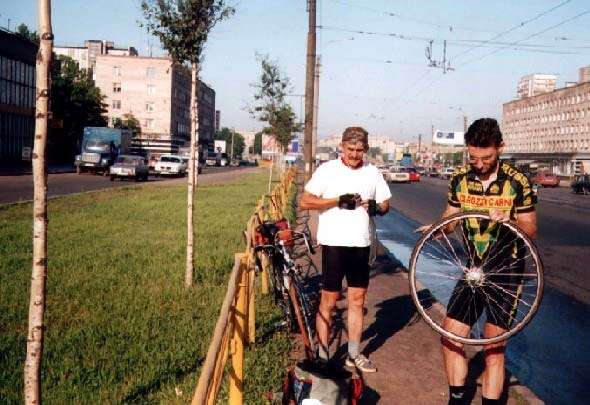
The first part is to be a car-escorted ride along the Neva embankment. Plenty of English randonnées have mad dashes from the start, but nothing was ever quite like this. The bunch follows the car at an insane pace, with me dragged along at the back. At least my chain has risen to the occasion and started working perfectly. Now I am one of the speedier auks, but even I am looking for some excuse to slow down. Soon one presents itself as my rear tyre deflates. Never have I been so glad to have a puncture. So gratefully I pull over and replace the tube.
The M18 leaving St Petersburg is a time triallists dream: a straight, flat dual carriageway. As I restart I expect to see some of the back markers fairly soon, but no-one is visible. I accelerate. 50km later, there is still no-one. After 80km I see a group of riders ahead of me, struggle to catch up. One of them asks what had happened to me. "I had a puncture in Petersburg", I explain.
"You should have said, we would have helped you."
"It was only a puncture", I reply. Mollycoddling again.
"The leaders will be half an hour ahead of us", I am told. "There are some former top racing cyclists riding."
I look at my watch. "They'll just have to wait at the control." I increase my pace anyway, just to be on the safe side.
At 120km comes the first junction and at 130km the first control - a cyclist by the side of the road. He signs my card. There doesn't seem to be anything else to hang around for, so I carry on, back to the M18. The road now becomes annoyingly straight, with an annoying headwind and the afternoon heat equally annoying. There are no villages on this stretch, and there is nothing for it but to plod on for the 90km to the next town, Lodeynoe Pole. Some way along a car pulls alongside, and the organiser, Andrei Hannolainen, leans out of the window shouting encouragement. "You are the leader!" I am? I've only passed a dozen or so cyclists, where are the others? I slow down, there isn't much point in chasing nonexistent riders. Fortunately Lodeynoe Pole isn't too much further, so I find a café, stop and order some pizza and beer.
Halfway through my second pizza another couple of riders arrive. And slowly the place fills up with cyclists: absolutely no-one rides past. This is almost an English control! The others look look a bit askance at my habit of drinking beer on a randonnée - expensive imported luxury beer at that (or from an English perspective, cheap Danish beer). But I've drunk Russian beer, and whilst it is brown, wet, and comes in bottles, so is motor oil. I explain about the importance of beer in the cyclist's diet, the essential vitamins and minerals - but they don't look convinced.
"Have you seen the lake yet?" someone asks.
"No."
"If you go back to one of the bridges near Petersburg, go about two-thirds of the way across and lie down, you can just about see it." I decide that it isn't worth going back.
Eventually I leave with a couple of other riders: Yura, the Ukrainian, and Volodya, from Petersburg. Following Volodya's local knowledge we immediately go off course. Twice. We can see the bridge we want to reach and at one point even go under it, but which road takes us there? Naturally there are no signposts to tell us - this is Russia. Eventually we give up, head back under the bridge and lug our bikes up the embankment. It's only 20km to the real control now, the wind is at our backs and we get there without dificulty.
This control is another cyclist by the side of the road. But here there is also a river and a well. As I fill up my water bottles from the well I hear an enormous splash behind me - Yura has taken an unsubtle approach to washing and jumped in the river. Neither I nor Volodya decide to copy him. More riders arrive, and we continue as a sizeable bunch.
Soon we leave Leningrad oblast (Yes, I know the town has changed its name but the oblast hasn't - it's Russia) for Karelia and soon afterwards turn off onto the A130. This is more like it! The road winds its way along rivers and through picturesque Karelian villages. We make extremely good time, too, though this is largely my fault as I do far more than my share at the front (I've still got a point to prove). The fierce heat of the afternoon has given way to pleasantly English temperatures, and the thought of food and sleep at the next control spurs us on. In a remarkably short time we see a marshal ahead of us, who directs us off the road onto a sandy track. In 50 yards we reach the control and have our first sight of Ladoga. The control is on the beach. Andrei and his helpers are brewing tea and cooking kasha over a campfire, and alongside a row of tents provides sleeping space. Although it's after midnight it's still perfectly light - we are at the same latitude as the Faroes and this far north it just doesn't get dark.
After a few hours sleep in one of the tents, I decide that it would be a good idea to wake myself up with an invigorating dip in the lake. So I strip off and dash in. In fact it's so invigorating that, as the water closes over my ankles, all systems in my feet instantly shut down. This isn't one of my better ideas. Fortunately the lake is very shallow here, and there is no chance of going any deeper. I wash myself by splashing as little water as possible over the rest of my body, then dash out before my toes have a chance to drop off. Then it's back on the bike and on towards the next control.
Nocturnal cycling has definite advantages here, as it is perfectly light and comfortably cool. And if the scenery was good on the last stretch, it is superb here. The road wanders along the edge of the lake, which forms a series of wooded headlands and rocky inlets, reminiscent of western Scotland. Each vista seems better than the last. I'm not the only one to appreciate night riding, as soon I catch Slava, one of the Volgograd riders. He, however, looks very uncomfortable.
"Did you eat at the last control?" he asks me.
"Of course", I reply. "You?"
"No."
It takes me a moment to get over the shock of a randonneur not eating, but it certainly explains his distress. I immediately call a halt, rummage in my pannier and hand him a large lump of flapjack. He looks at it suspiciously. "Flapjack", I tell him. "English food."
He nibles a little. "Yum yum," comes the reply, and the flapjack disappears. Instantly his legs start to move more rapidly and we ride together for a while. However they don't move quite as rapidly as mine, for when I look round after a particularly lumpy and rock-strewn stretch, there is no-one there.
The route sheet indicates a turning soon, so when I see a road going off to the left, I take it. This proves to be a wonderfully twisty and scenic route through a village and around a headland, and eventually emerges at a T junction. I look at the route sheet. No T junction. No signpost either, naturally. Have I gone off course? I'm not sure why, but every kilometre along the road there is a board showing distance travelled, but signposts? Nyet. It probably says something profound about Russia that you always know how far you have come, but never where you are going. Anyway, left seems to be the more sensible option, so I take it. A few kilometres later I find a man by the side of the road mending his Lada (a not uncommon sight here) so stop to ask him if this is the right road. Unfortunately he doesn't speak Russian, but only the local Finnish. But we understand each other enough to confirm that I am on course.
Some way later I pass Slava again, riding better now though not entirely comfortably. He is amazed to see me again. I must have gone off course back there, though as the detour was so pretty I really don't mind. It isn't too far now to the next town - Sortavala - and the next control, and Slava seems happy to continue at his own pace without any further flapjack.
In Sortavala the control is described as "Outside the entrance to the church", and I even have a helpful photo. The church isn't difficult to find, but the control... there's no-one there. I ride round the church: no-one. I compare the view with the photo: it's definitely the right place. I ride round the other way: still no-one. There's only one thing to do: I accost a passer-by, explain what I'm doing and ask him to sign my brevet card. He, however, is very suspicious, and walks off saying "I don't understand". Just then a woman calls out to me. "Are you English?".
"Yes."
"My son speaks English very well." And it seems that she speaks some as well, as we chat away in a mixture of the two languages. She couldn't be more helpful. She signs my card, and even invites me home for a meal (Do I look that hungry? Probably), though I have to decline as she has hardly started her morning shopping and, knowing Russian hospitality, I wouldn't leave again until evening. But thank you anyway, Elena.
From Sortavala the road leaves the lake and winds its way vaguely south-east across hills and valleys. At least I think it does, it twists so much that I lose all sense of direction. But this is the A129, all I have to do is follow it for 270km and I shall be back in St Petersburg. However my aim here is merely to reach the next control at 600km, where there will be food. This is the shortest leg, but it's also the lumpiest. The hills aren't very big, but more than make up for this in steepness. I begin to pine for my granny ring, but it's in England. It wouldn't fit on my improvised transmission. On the steepest climbs I resort to walking. After a while the tarmac disappears to be replaced by dirt. But this isn't really a problem as the control appears soon afterwards, on a meadow above the road.
As I arrive
Andrei greets me effusively. "James! You are a real man!..." The rest of what he
has to say is drowned out by the laughter of one of the (English-speaking and
female) helpers. But I've certainly done what I set out to do. I discover that
I am second on the road. This is quite acceptable to me: Russian honour is
satisfied as a local will have been first to finish, but I've still shown that
foreigners are quite capable of everything a muzhik is. I begin to
relax, eating kasha and drinking tea amid the buttercups in the afternoon sun.
This is just a nice place to be. Every so often a cyclist arrives, but like me,
no-one shows the slightest inclination to leave. Then it occurs to me: this is
the finish for the 600km event. It is quite acceptable to stop here. But I
promised to ride the full 800k. I look at my watch: it is now 3:30pm. If I
start now I should reach Petersburg in time for a good night's sleep. So I say
my farewells and it's back on the road.
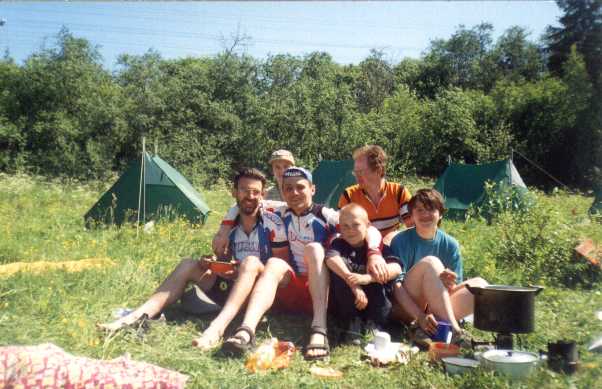
Before the start we were warned that the event contained 40km of dirt: this is it. I wasn't particularly worried by this, I have plenty of experience of Russian dirt and 40km doesn't seem very far when you have been across Siberia. Actually a well-maintained, flat dirt road is a very good cycling surface. But this is neither. A thick layer of dust coversthe whole surface. So you climb as far as you can before wheelspin takes over, then descend gingerly into dust-filled sumps (which are generally unrideable). Every time a lorry comes past (which is surprisingly frequently) the world disappears; you can either ride blind or stop. I wonder about turning round and heading back to the 600k finish. But bulldog spirit means tenacity, and I'm not going to give up. So I slip, slide and slither slowly onwards. Three hours after leaving the control I emerge onto tarmac again. Not exactly an impressive pace, but I'm across. Now it's just a straight run to the finish.
Gradually the hills get smaller and the villages more frequent. In Priozersk I feel like some refreshment, look around for a café and fail to find one. I decide to press on to the next town, Sosnovo. My pannier rations are low and by the time I reach Sosnovo I am down to my last Eccles cake. This is getting desperate and I am faced with a dilemma. The town isn't actually on the main road: do I divert into the town to look for a café or hope that there is a service station on the by-pass? I'm hungry enough not to want to do both. I try the by-pass and by luck holds: I find a service station almost immediately and stop to refuel.
It's 60km to St Petersburg and I just count down the kilometres. Though as these reduce to single figures there still isn't any sign of the city. I stop to ask whether I am on the right road; I am. When I reach 0km I discover why: the distances aren't actually to the city itself but to the GAI (traffic police) post some way outside it. There's a junction here and I ask directions from a traffic policeman: left and another 15km to go. For the first time in the event I put on my lights and head on down the six-lane highway into the city.

The original finish was to have been at the Winter Palace, which would have summed up Russian history nicely. However I wouldn't want to brave Petersburg traffic after 800km, and can well understand why it was moved to the outskirts. However "a set of traffic lights near Ozerki metro station" just doesn't have the same resonance. More to the point, I'm not entirely sure I can find it in the dark - one suburb looks much like another. As I ride along I suddenly here a voice. "James!" It's one of the helpers - and I've finished! I am escorted to the HQ, shower and sleep.
It's not until the next morning that I find that I really was the second finisher, and that the first was Yura. Whoops! This is a bit of an embarassment for Russian muzhikhood. But as a Ukrainian, Yura's almost Russian, so that's all right; and some of my wife's nationality must have rubbed off, so I'm a bit Russian, and that's all right too. So no-one really minds.
If this has whetted your appetite, Around Lake Ladoga is to be an annual event, and there are plans to extend it to 1200k. The terrain isn't particularly difficult but it is remote, and you will need more than a little self-sufficiency to get round successfully. But isn't this the English style?
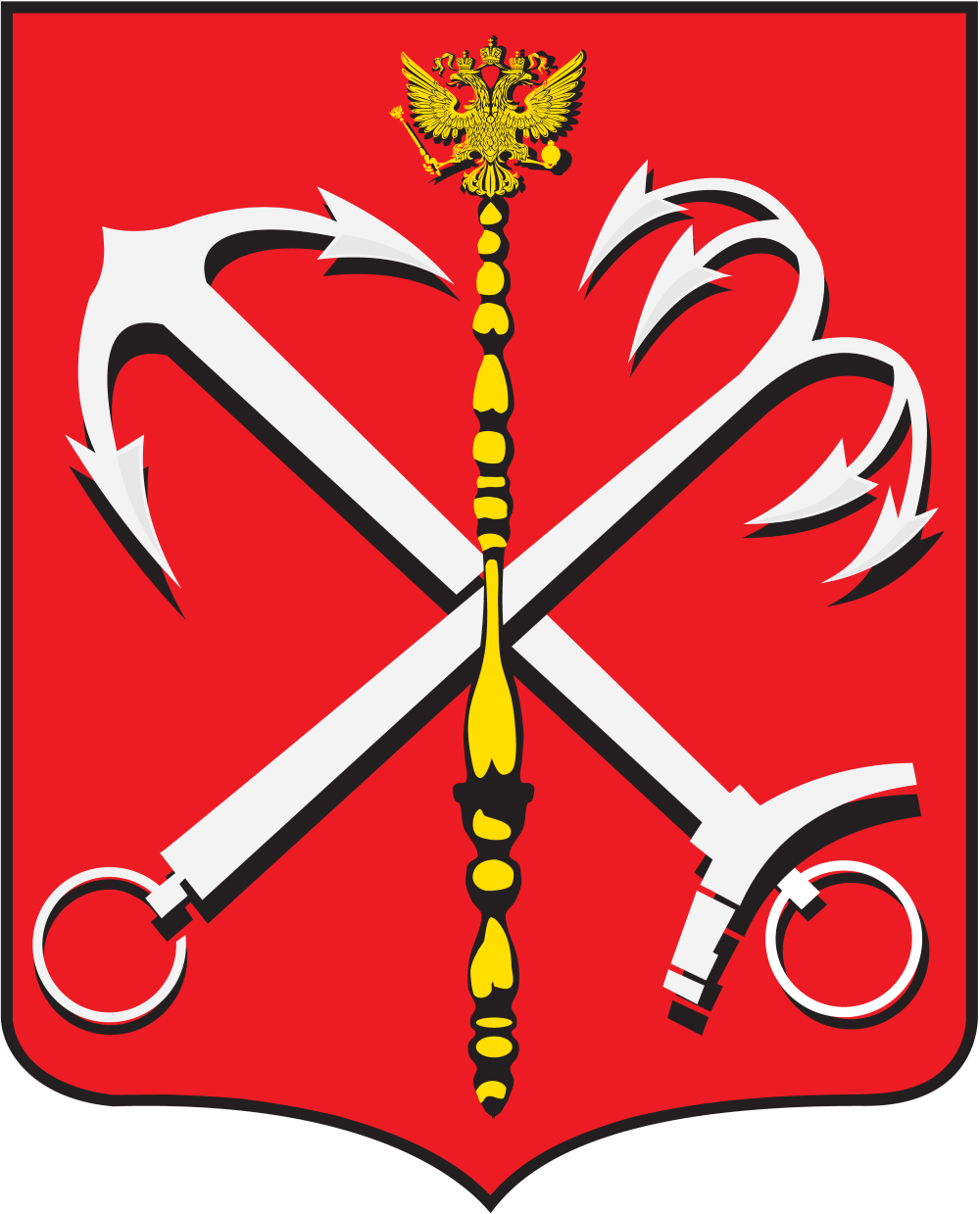 Санкт-Петербург
Санкт-Петербург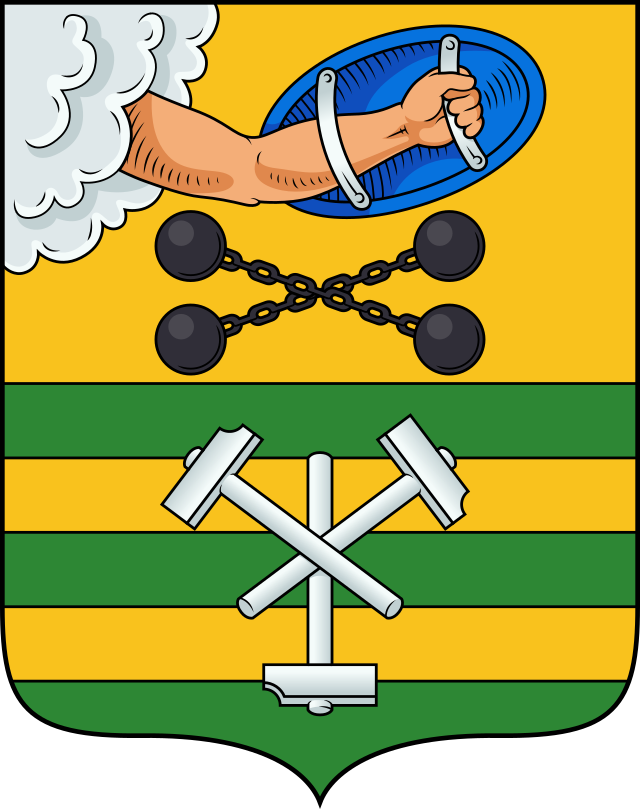 Петрозаводск
Петрозаводск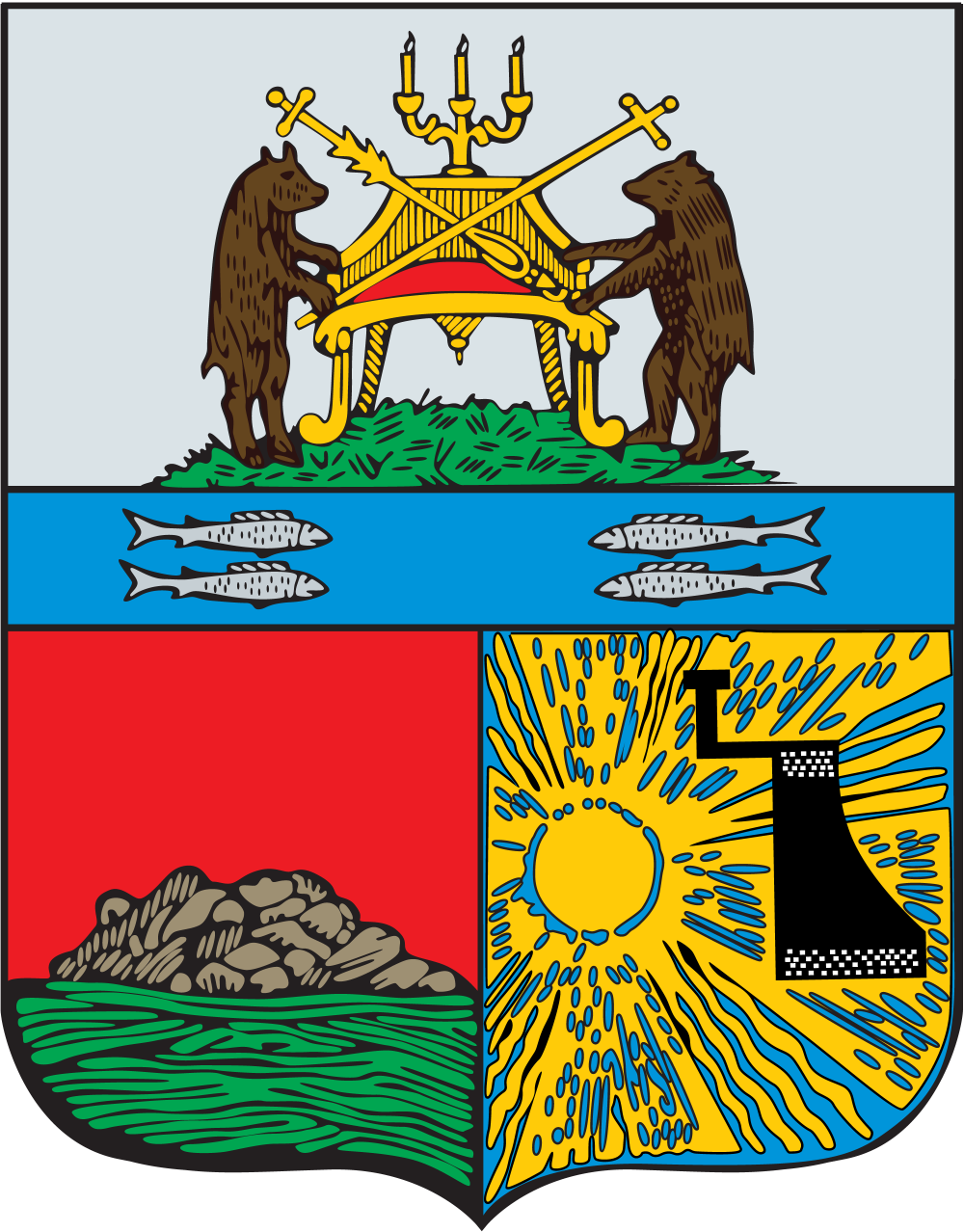 Череповец
Череповец